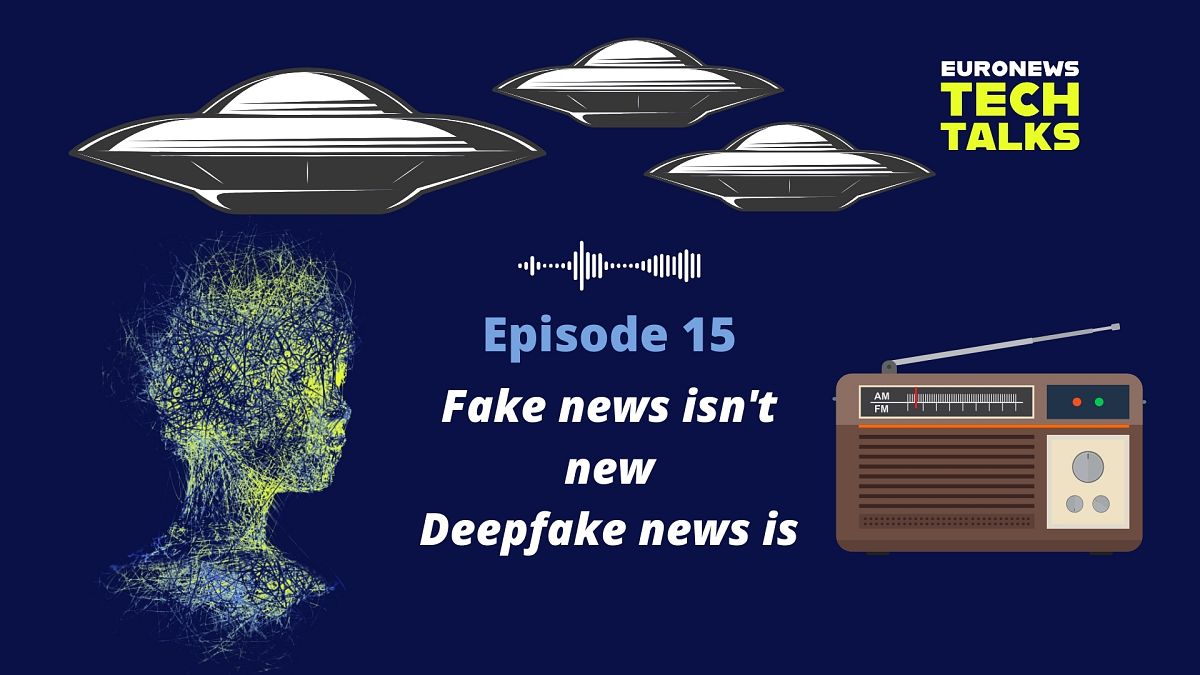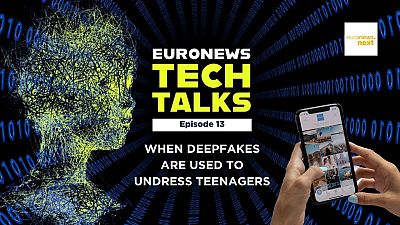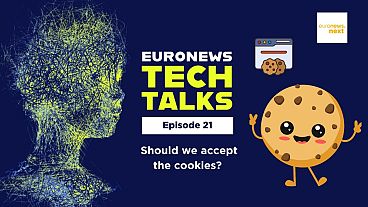The speed at which AI deepfake technology generate fake news is concerning. They can recreate videos of politicians or television presenters, manipulating their mouths to utter words they've never spoken.
How can we protect ourselves from being deepfaked? Can a single photo published on social media ruin our lives? Is there a way to regulate it, or are we living in the Wild West? We posed these questions to experts in debunking fake news and privacy protection in AI.
In this episode, we wrap up our three-part series exploring the risks and potential of AI deepfake technology.
Deepfakes can serve various purposes. In our previous episodes, we explored examples of them being used as a tool of harassment or to process grief over the loss of our loved ones.
But deepfakes can also be used for political manipulation.
As highlighted in a segment on Euronews' debunking show, The Cube, journalist Matthew Hollroyd explores a deepfake featuring Ukraine's President Volodymyr Zelenskyy, falsely urging citizens to surrender to Russia, sparking concerns about political narrative manipulation.
This incident underscores a growing trend of using deepfakes for political ends, spreading misinformation rapidly on social media. The video's Twitter views, surpassing 100,000, emphasize deepfakes' impact on public perception.
Fake news is not new, but deepfake news is
Fake news has existed throughout history.
The historical 1938 radio play 'War of the Worlds,' led by Orson Welles, demonstrated the media's power to induce panic.
But long before the Roman government manipulated information for political reasons, with emperors exaggerating military victories or downplaying defeats to maintain an image of strength and stability.
Pharaohs followed a similar pattern, commissioning inscriptions, and monuments that glorified their achievements and prowess.
However, deepfakes represent a distinct threat.
Powered by artificial intelligence, they create hyper-realistic fabrications. For instance, Hollywood's use in resurrecting Carrie Fisher's Princess Leia in Rogue One demonstrates the potential of this technology to seamlessly integrate past performances into new productions.
To protect themselves, the Hollywood actors' union initiated a historic 4-month-long strike, resulting in an agreement stipulating that studios must obtain an actor's permission before creating a digital version, with compensation based on the digital version's role in the film.
For TV presenters, the risk of creating misinformation is significant. Graphika, a New York-based research firm, uncovered a Chinese state-linked campaign using AI-generated personas for global influence, amplifying the risk of misinformation in news media.
How can we protect against deepfakes?
To counter deepfake threats, countries worldwide are adopting legal measures, research initiatives, and awareness campaigns. The European Union stands as a pioneer with the EU AI Act, the world's first regulation on artificial intelligence, although the rapid advancement of technology makes regulation challenging.
Experts, including Patricia Thaine, CEO of Private AI, advocate for legislation to automatically detect and prevent inappropriate content.
Euronews Tech and misinformation correspondent Sophia Khatsenkova suggests using video analysis tools and browser plugins to identify deepfakes but cautions about varying technology accuracy.
Drawing a parallel with Orson Welles' 'War of the Worlds,' the honesty and transparency in using these tools are crucial. Welles' famous broadcast concluded with, "This is Orson Welles, ladies and gentlemen. Out of character to assure you that the War of the Worlds has no further significance."









